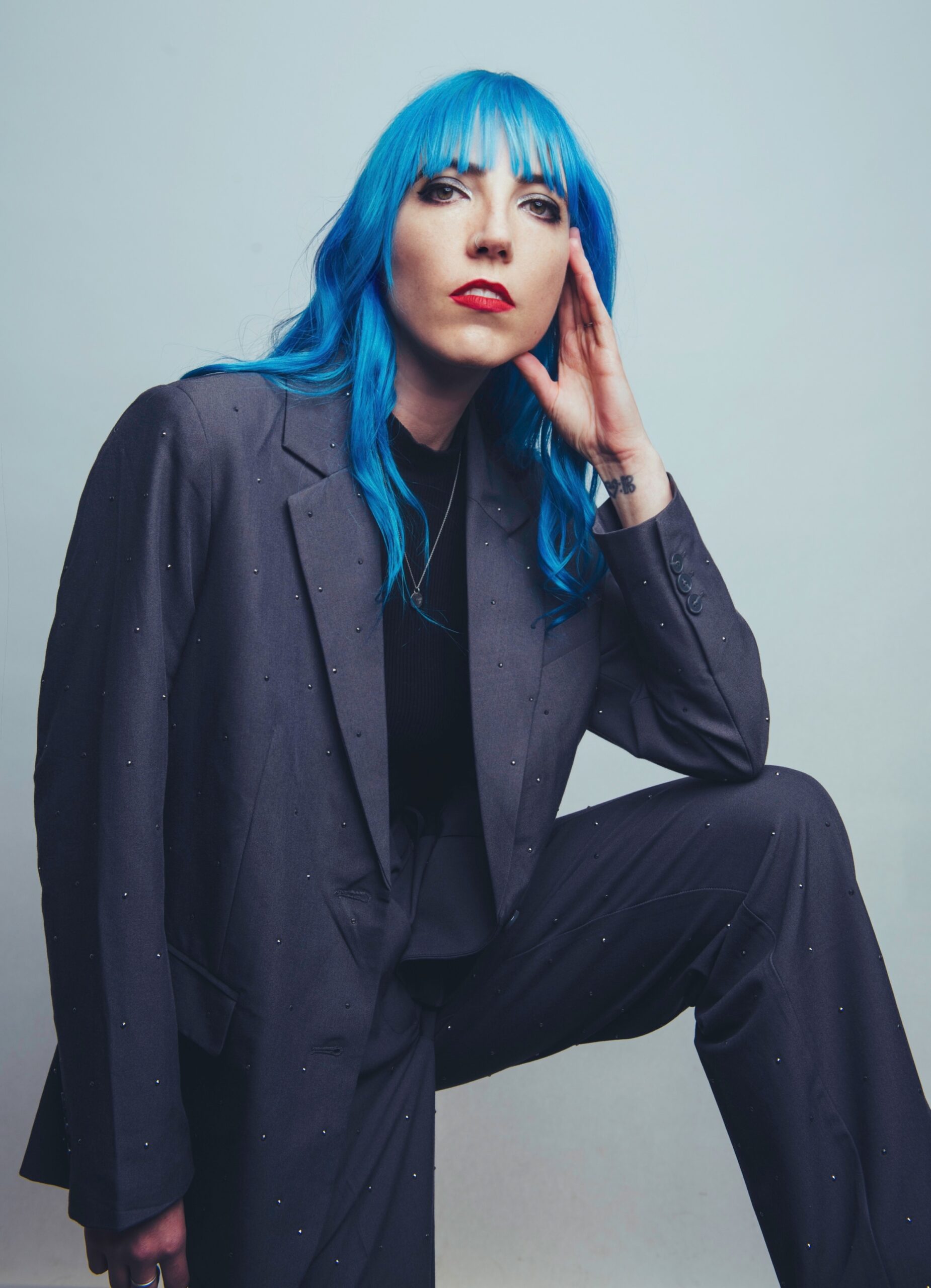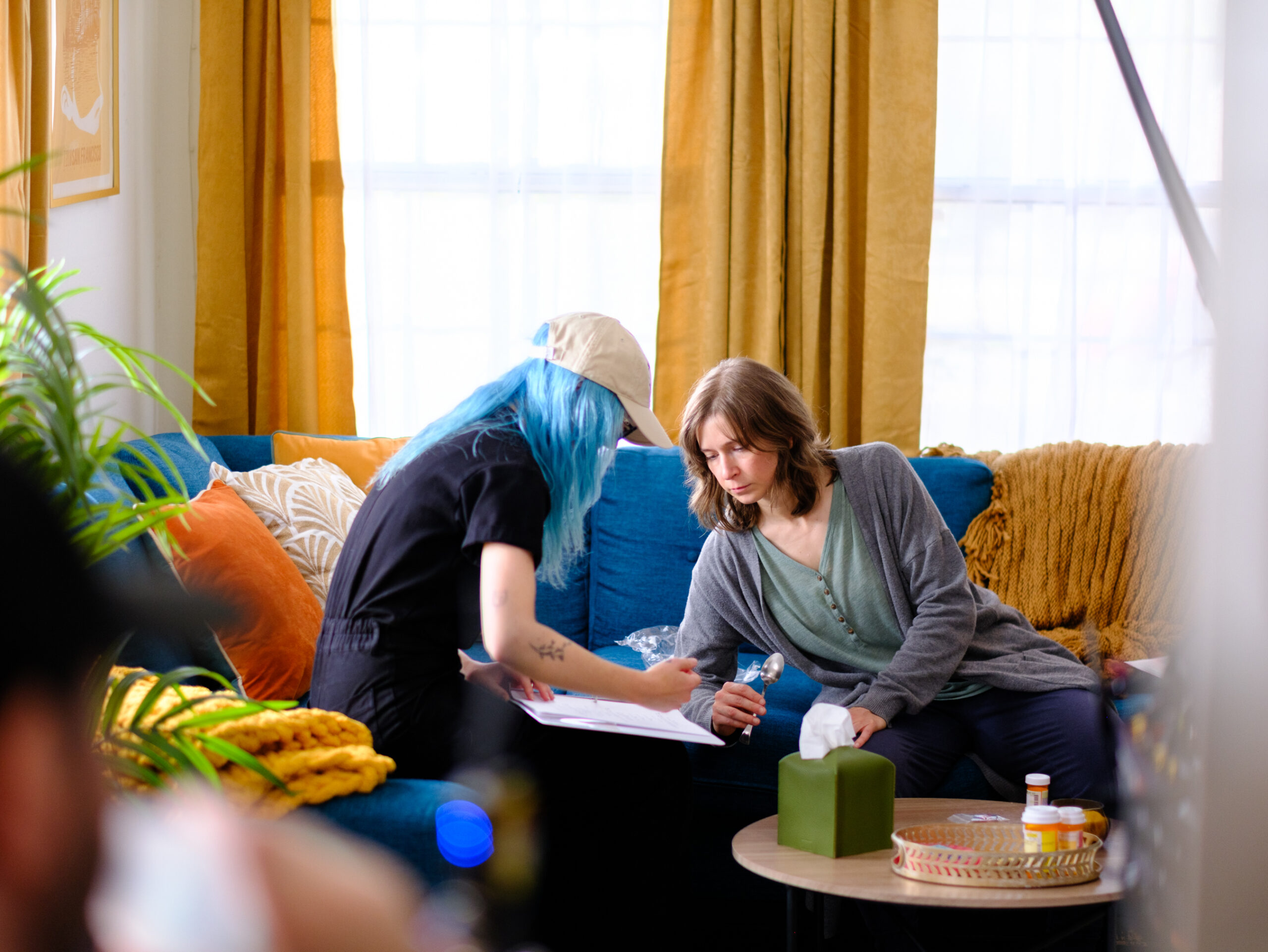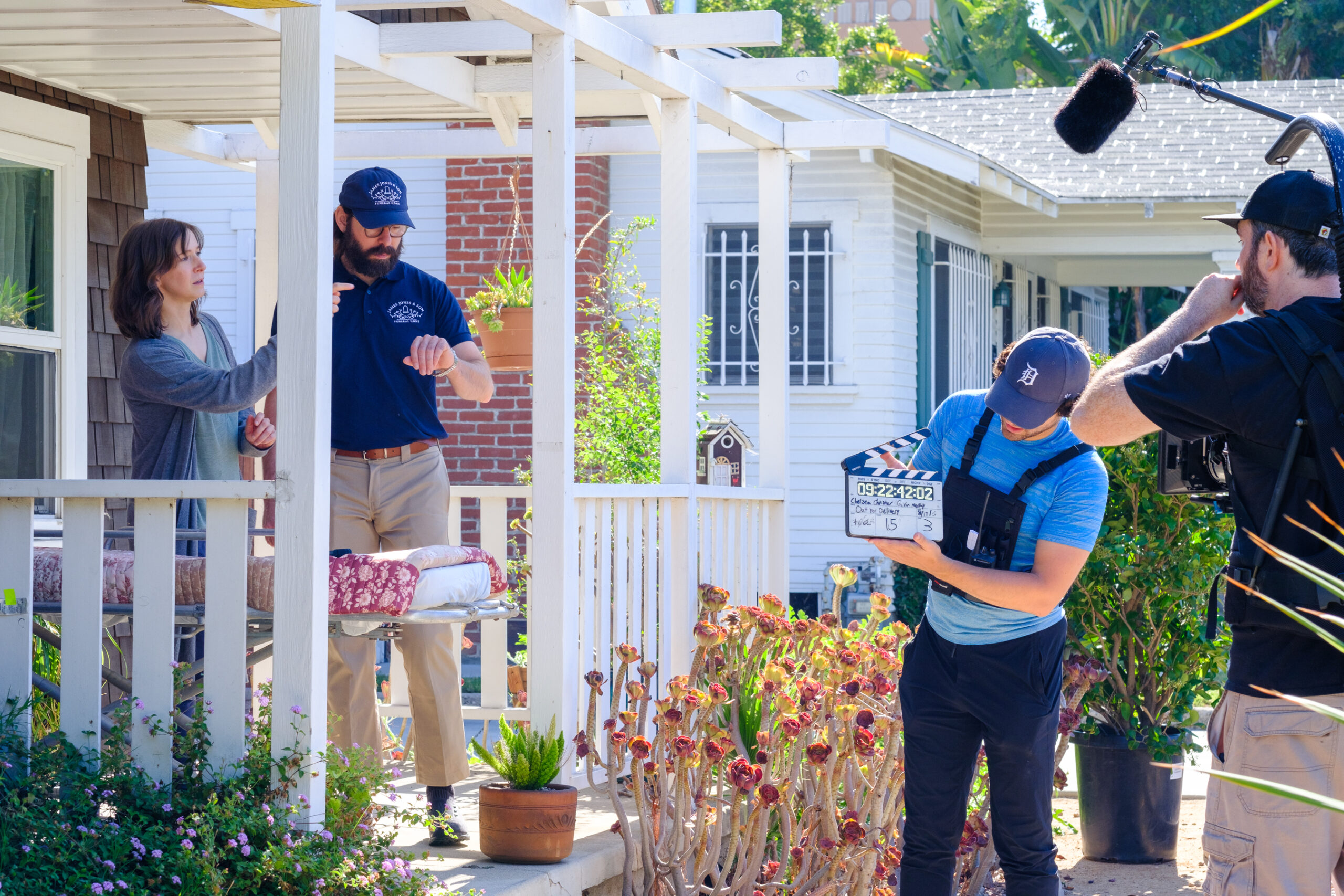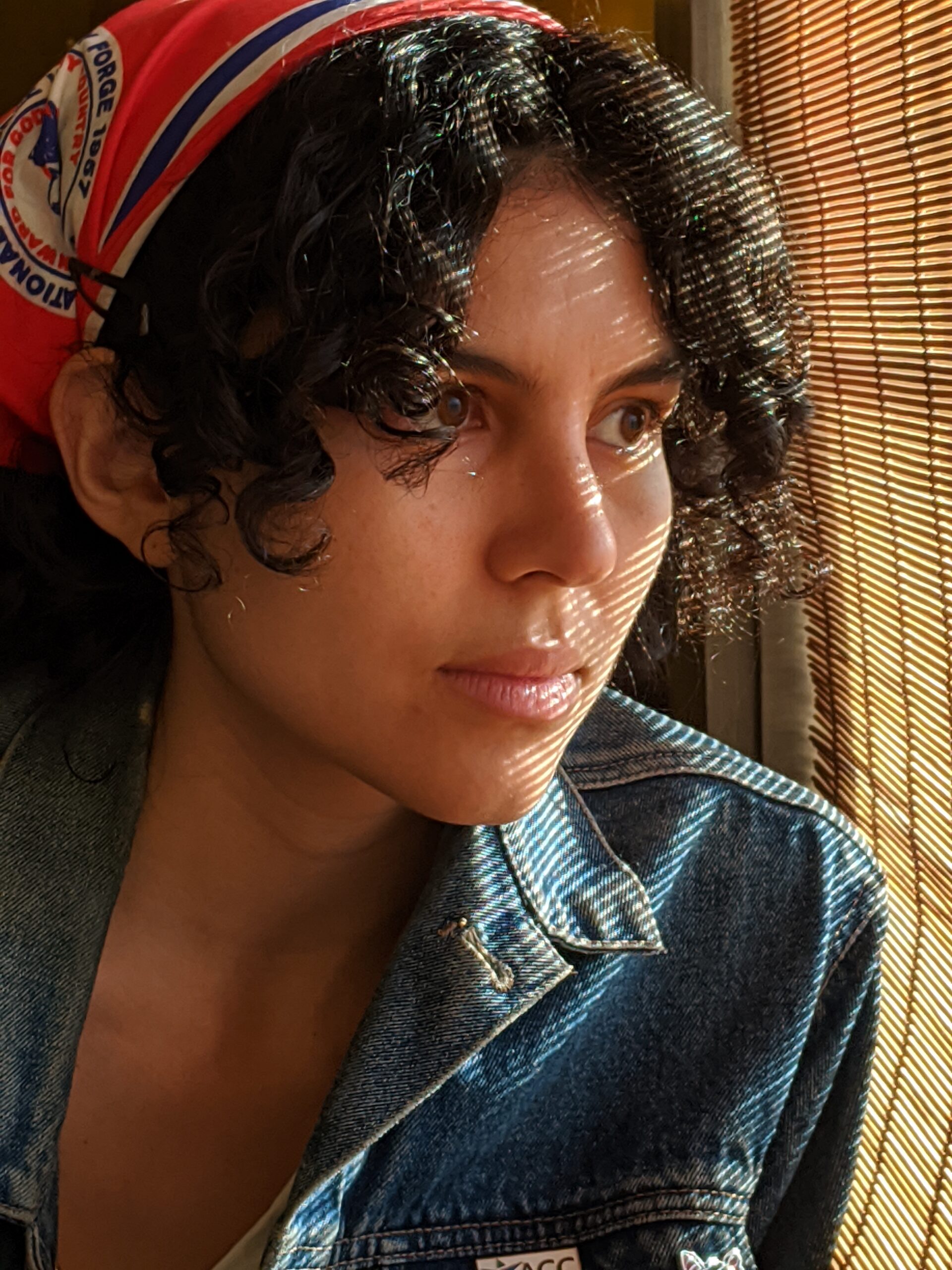Filmmaker Spotlight: Chelsea Christer (Out For Delivery)
September 10, 2025

Every year, the Charlotte Film Festival brings bold voices to the screen—but some voices echo off-screen too. In this spotlight, we’re getting to Chelsea Christer, whose work caught our eye and stuck with us.
What led you to creating Out for Delivery?
Unfortunately, OUT FOR DELIVERY is inspired by true events. A family friend made the decision to pursue end of life medication after losing a very painful battle with cancer. Ever since the pandemic, they’ve now made it possible to ship this medication directly. And the shipping company lost the package. Completely. There was no trace of it, and customer service was extremely unhelpful. When this story was told to me, the absolute atrocity of it all was so absurd that I found myself laughing. I felt terrible about finding dark comedy in this true story, so I explored those feelings by writing them into an even darker comedy. OUT FOR DELIVERY is my ode to how the systems currently in place to make our lives (or deaths) “easier” are actually making things a lot worse. The further away we get from genuine human connection, the less we experience our lives to the fullest.
What were some inspirations going into the creative process?
Finding the tone of the film was extremely challenging. There aren’t a lot of dark comedies that go hand in hand human emotion/heart, but the film I kept coming back to–and one scene from that film in particular–was LITTLE MISS SUNSHINE. The scene where they’re at the hospital with the grandpa was our holy grail of reference for dark comedy + heart.
Tell us what you hope the audience gets from Out for Delivery?
There are all these systems in place to make our lives more “convenient”, but when it boils down to it–these structures take us further away from the only thing that really matters: connecting with our fellow humans.
What do you want your legacy to be as a filmmaker?
I love making films because it’s an art form that’s not only made in community, but is also experienced in community. The act of telling a story that makes an audience laugh, cry, or reflect in some way is the best high in the world. The stories I choose to tell are generally concepts that haunt me, and writing and directing them is my way of processing my own feelings on whatever it is I’m exploring. But what makes it come full circle is the audience reacting and processing the story I told. There’s nothing I love more than the conversation after screening a film. It’s amazing to hear the varied tapestries of life experiences that inform what people take away from the films I make.
So I guess that’s what I want my legacy to be, for audiences to feel seen or learn something about themselves through a film a make.

 tweet
tweet share
share



